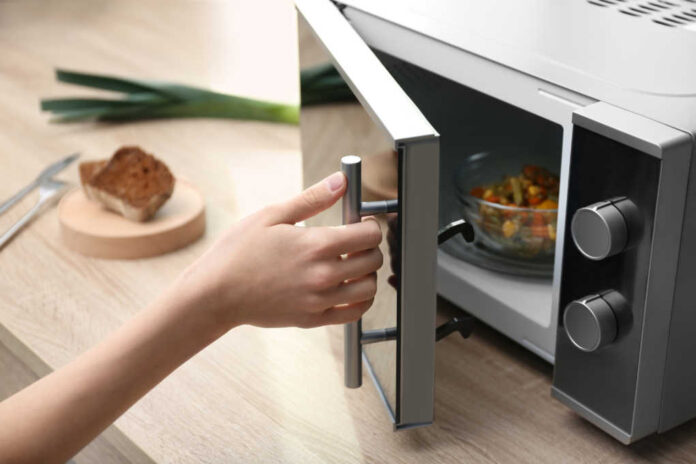
Microwaves can prepare your food quickly and efficiently, but they can also be problematic in some cases.
The main issue is that microwaves are very good at heating food unevenly. You might not notice how hot some areas of your food are until it’s too late.
This unevenness can cause you to burn your mouth, or in some cases, cause a dangerous explosion.
Microwave Safe Materials
Metal should never be microwaved. Metal items in microwaves can cause sparks, fires, and worse. Forks, spoons, knives, or any other metal utensils that you would like to use later should be left out of your microwaved food, even if it’s only in here for a brief moment. Metallic pans and aluminum foil should not hold food in the microwave.
Some plastic containers and dishes can melt or leech chemicals and other substances into food when microwaved. So, you should only put plastic containers in your microwave if the manufacturer recommends it.
Microwave safe dishes are generally made of glass, ceramic, or plastics that do not melt in high heat.
Don’t Reheat These Foods In The Microwave.
Not all foods are good for the microwave. Here are some common foods that you should always avoid microwaving.
– Nitrate-rich vegetables. Spinach, kale, celery, carrots, and turnips, for example. The nitrates in these foods can be converted into carcinogenic nitrosamines.
– Rice. When rice is left out at room temperature for any time, it can develop Bacillus Cereus bacteria. These bacteria will be killed by high heat, but the spores they produce will remain in the rice and cause a dangerous food poisoning case.
– Processed meats. The preservatives and other chemicals used in processed meats like ham and sausages can negatively interact with microwave radiation. This can lead to the formation of cholesterol oxidation products that have been associated with the development of coronary heart disease.
– Poultry and pork. Chicken, turkey, and pork often contain salmonella. As evidenced by this small study, microwaving appears to have no protective effect against this illness. “Of 30 persons who ate reheated meat, all ten who used a microwave oven became ill, compared with none of 20 who used a conventional oven or skillet.”
– Eggs. The moisture in eggs, combined with the glue-like albumin, can cause steam buildup. This can eventually blow up into an explosion, sending pockets of boiling goo flying all over the place. Worse than creating a mess in your microwave, this explosion might happen on your plate or on its way into your mouth.
There are risks to microwaving food. If you’re not sure if your leftovers or any other food is safe in the microwave, it’s best to err on the side of caution.
It might feel bad to throw out food that you didn’t finish, but it’s not as bad as a visit to the emergency room.






















